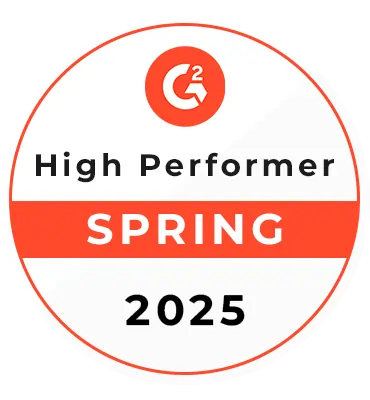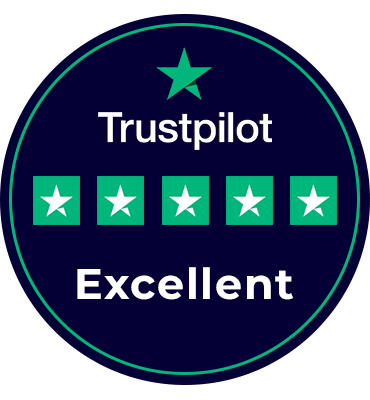PPC for Manufacturers: An Ultimate Guide
Manish Kumawat
Last Updated on: 01 October 2025
If you are a manufacturing business owner looking to get a strong online presence for your business?
Then there is no doubt! You are in the ideal place. Here we discuss the most suitable tool to achieve your goal-pay-per-click for manufacturing companies
Nowadays, digital marketing is becoming more popular and beneficial. Pay-per-click (PPC) advertising is one of the major parts of it. This lets them show ads directly to folks on search engines and social media who are looking up stuff related to what they offer.
The name PPC itself describes what it does. PPC advertising works really well for these companies because it helps them get their message in front of the right eye. They can pick specific search terms that matter a lot for their business so when someone looks up those terms, bam! Their ad shows up without bothering anyone with things they don't care about.
We've put together everything you need to know about using PPC if you make stuff and want people online to notice you more. We'll talk about why PPC is such a big deal in your marketing plan, all the good things it brings your way, how you should get ready for your very first PPC campaign, plus tips on making one that actually does what you hope it will do.
PPC for manufacturers is an effective way to generate high-quality leads and grow your business. At Fulminous Software, we specialize in creating customized PPC campaigns that meet the unique needs of manufacturers and industrial companies.
Understanding PPC in the Manufacturing Sector
PPC advertising sticks out as a crucial tactic for manufacturers trying to establish themselves in the field of digital marketing. With PPC, the aim is to get more people to visit a manufacturer's website by catching the eye of folks who are already online hunting for what they offer. By diving into PPC campaigns, those in the manufacturing industry can boost how visible they are online and beef up their marketing game to attract leads that really matter.
The Role of PPC in Modern Manufacturing Marketing Strategies
With everything moving so fast on the internet, companies that make stuff need to be seen by people who want to buy their products. That's where PPC comes into play.
With PPC, these companies can shout out to exactly who they're looking for - their target audience - and get noticed more easily. They put up ads that pop up right when potential clients are searching for what they offer. This way, not only do more people visit their websites but there’s also a good chance these visits turn into sales.
On top of getting more eyes on their website, manufacturers using PPC have an edge over others because they can catch potential clients at just the right time – when those folks are ready to spend money on what they’re offering.
So yeah, if you're making something and want it sold? Getting your online presence beefed up with some smartly placed ads could really help rake in those qualified leads you're after while keeping one step ahead of your competition.
Key Benefits of PPC for Manufacturers
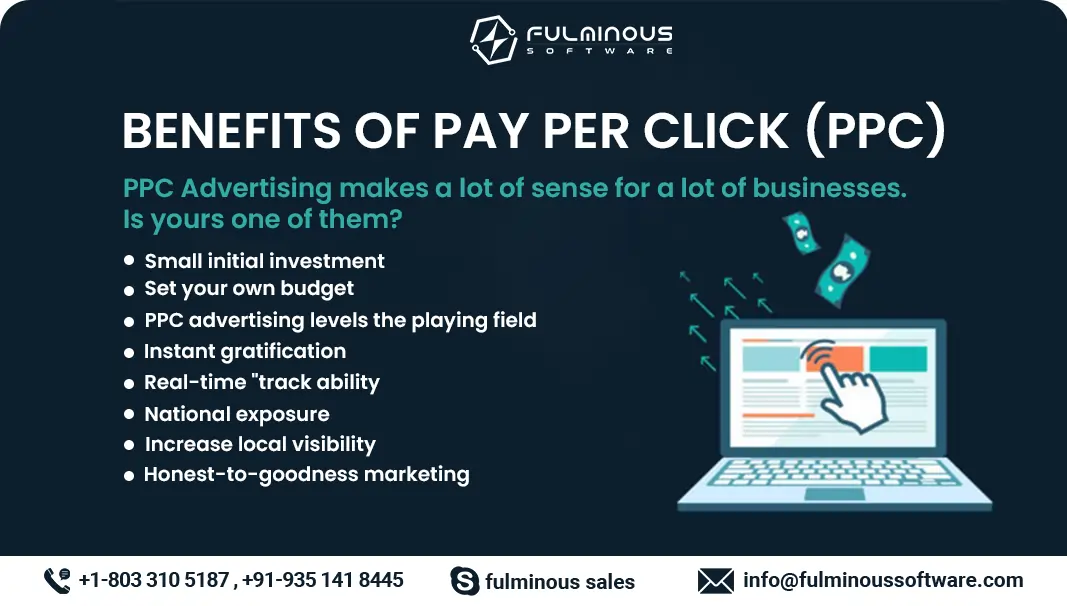
PPC advertising brings a lot of perks to the table for those making stuff in the manufacturing industry:
- With PPC campaigns, getting your brand out there becomes easier.
- Driving folks to your website through PPC helps amp up all other marketing strategies you've got going on.
- When it comes down to finding people interested in what you offer, PPC is top-notch. You get to show your ads directly to those looking for services like yours which means a better shot at turning them into customers who actually buy from you.
- By keeping an eye on how well these ad campaigns are doing and learning about what makes your target audience tick, businesses can tweak their approach.
By focusing on digital marketing techniques like PPC advertising within the manufacturing industry context, companies aim at enhancing their visibility among a wider audience while tailoring messages that resonate with potential clients specifically searching for solutions they provide—thereby improving overall campaign performance and generating qualified leads as part of a comprehensive marketing strategy aimed at boosting both brand awareness and tangible results from promotional activities.
Preparing for Your First PPC Campaign
How to do PPC advertising as a manufacturing company?
This is a major concern for manufacturers. Getting ready for your first PPC campaign means you need a PPC strategy to get the hang of some important tools and stuff. Two big things can make or break a PPC campaign: picking where to run your ads, like on Google Ads or Bing Ads, and using Google's Keyword Planner.
With places like Google Ads and Bing Ads, companies can show their ads on search engines and social media sites.
Google's Keyword Planner is this tool that helps companies figure out which words people are searching for that relate most closely with what they're offering. Knowing what potential clients are looking up is super important if you want your ad campaigns to hit the mark.
Essential Tools and Resources Needed
When getting ready for a PPC campaign, it's important for manufacturers to make sure they have all the necessary tools and resources at their disposal. Here's what they need:
- Landing Page: Having a landing page that looks good and works well is key to making the most out of a PPC campaign. It needs to be made with the campaign's specific aims in mind and should clearly tell potential clients what action you want them to take.
- Google Ads: This is a go-to choice for running ads on Google search results and its partner sites.
- Keyword Research: Finding just the right words or phrases people are searching for is super important. Using something like Google’s Keyword Planner helps find those perfect keywords that will draw attention to your campaigns.
With these essential pieces, manufacturers can set up PPC campaigns poised for success, aiming directly at meeting their marketing objectives while keeping track of how things are going along the way.
Setting Up Your PPC Account: A Quick Overview
To kick things off, companies have to pick where they want their ads to run, like on Google Ads or Bing Ads. When you choose the platform, the next step involves writing ad copy that grabs attention by highlighting what makes them stand out from others. This message needs to be clear for the people they're trying to reach and match what they're hoping to achieve with their campaign.
With their ad copy ready, businesses then decide who should see their ads and how much money they're willing to spend. They can get specific here by selecting locations, age groups, or interests so that only certain folks see these ads. Lastly comes keeping an eye on everything; tweaking as needed ensures your PPC efforts hit the mark.
In essence:
- Choosing platforms like Google Ads.
- Crafting engaging ad content.
- Setting sights on a particular target audience.
- Adjusting based on feedback for a truly successful PPC campaign, aiming at drawing in those potential clients effectively.
Crafting a Winning PPC Strategy for Manufacturers
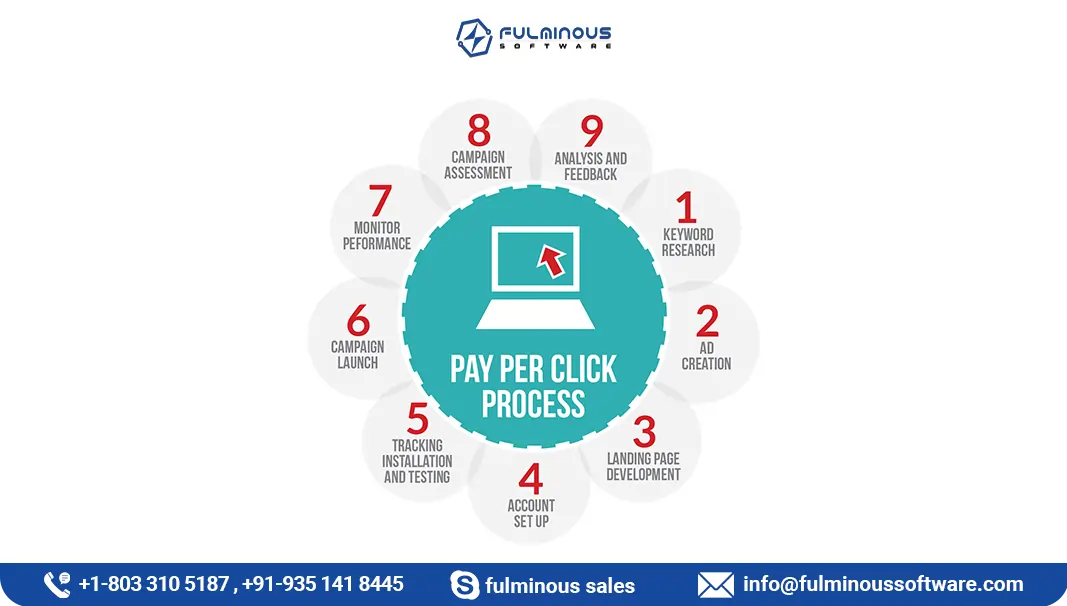
To really nail a PPC strategy that works, manufacturers need to get a few things right. Initially, they must ascertain the precise audience that their advertisements are intended for.
Aligning these advertisements with the larger digital marketing plan is essential if you want them to really hit home and convert viewers into customers.
In doing so, not only do potential clients get drawn in by compelling ad copy but also feel a consistent message across all digital platforms used by the manufacturer.
Identifying Your Target Audience
Figuring out who you're trying to reach is super important when you want your pay-per-click (PPC) ads to work well for making stuff. By getting who these potential clients are and what they like, makers of things can make ads that really speak to their crowd.
To get a handle on the target audience, it's smart for manufacturers to look at stuff like age groups, what people are into, and how they act. They should also think about the steps a buyer takes from just looking around all the way up to buying something.
Digging into keyword research is another good move for figuring out who might buy your stuff.
Conducting Comprehensive Keyword Research
Doing good keyword research is super important if you want your PPC campaign to work well. It's all about finding the right words that match what you're selling so more people who might buy from you see your ads.
When looking for these keywords, manufacturers need to think about a few things like how many times those words are searched for, how tough the competition is, and how closely they relate to what's being sold.
On top of this, it’s smart for them to keep an eye out for negative keywords too. These are terms that don't really fit with what they offer. By not including these irrelevant terms, manufacturers make sure only the right eyes land on their ads.
Figuring out where best to run their PPC campaigns is key. Whether it’s through search engines or on social media platforms, understanding which channels bring in better results helps them use their budget smarter and reach potential clients more effectively.
Step-by-Step Guide to Begin Your PPC Campaign
A PPC campaign requires planning and execution to get off to a good start. Here's how manufacturers can get started:
Step 1: Defining Your Campaign Goals
It's important for manufacturers to be clear about what they want from their campaigns. This could be getting more people to know about their brand, finding new leads, or boosting sales.
Step 2: By choosing the Right PPC Platforms
Next up is picking where your ads will live. Manufacturers should go for platforms that fit well with who they're trying to reach and what they're aiming to achieve.
Step 3: Through creating engaging ad copy
Now comes the part where you talk directly to your potential customers through your ads. Manufacturers need ad copy that stands out by highlighting what makes them different in a way that speaks directly to their target audience’s needs and wants—keeping things short but powerful with an irresistible call to action at the end.
Step 4: Keeping an Eye on How Things Are Going
After everything is set up, don't just leave it running without any check-ins; keep track of how well your PPC campaigns are doing and regularly adjust based on key performance indicators like click-through rates (CTR), conversion rates (CR), and return on investment (ROI).
Following this guide step-by-step allows manufacturers not only to launch but also to fine-tune their PPC campaigns effectively toward achieving great results.
Advanced PPC Tactics for Enhanced Performance
Manufacturers looking to boost their PPC campaign performance can use some advanced strategies.
Remarketing
With remarketing, manufacturers can show ads to folks who've already checked out their website or interacted with the brand somehow.
A/B Testing
Through A/B testing, manufacturers try out different versions of their ads or web pages to see which one works best. They might change up headlines, pictures, or calls to action.
Teaming up with a digital marketing agency that knows its stuff about PPC can be a big plus for manufacturers.
Utilizing Remarketing Strategies
Remarketing is a smart way for manufacturers to get back in touch with people who have shown interest in their brand before.
This approach involves adding a special tracking code on the manufacturer's site. With this code, they can watch how users behave on their site and then create custom groups based on what those users do.
For remarketing to really work well, here’s what manufacturers should do:
- Break down audiences: They should organize their audience into smaller groups depending on things like whether someone left items in a shopping cart or looked at certain products but didn't buy anything.
- Make eye-catching ads: The advertisements used for remarketing need to grab attention quickly and convince viewers why revisiting the website is worth their time.
- Keep an eye out and tweak as needed: It's important for manufacturers not only to keep track of how well these targeted campaigns are doing but also be ready to change tactics based on new information—like adjusting how much money they're spending per ad view or trying different kinds of adverts—to improve chances of success.
A/B Testing for Ads and Landing Pages
A/B testing is a super useful method for companies to make their ads and landing pages work better, leading to more people taking the action they want. For those diving into A/B testing, here are some tips:
- Focus on one thing at a time: When you're checking what works best, change just one part like the headline, pictures, buttons that ask viewers to do something (call-to-action), or ad copy.
- Know what you're aiming for: Before starting your tests, be clear about what success looks like. This could mean getting more clicks, having more folks actually buy or sign up because of your ad (conversion rates), or keeping them from leaving too quickly (bounce rates).
- Watch the results and pay close attention to each version: See which changes lead to better outcomes.
- Make updates based on facts: After seeing what works best from your tests, implement those winning elements in your actual ads and landing pages, tweaking things like headlines or ad copy, so users have a smoother experience.
Measuring Success in PPC Campaigns
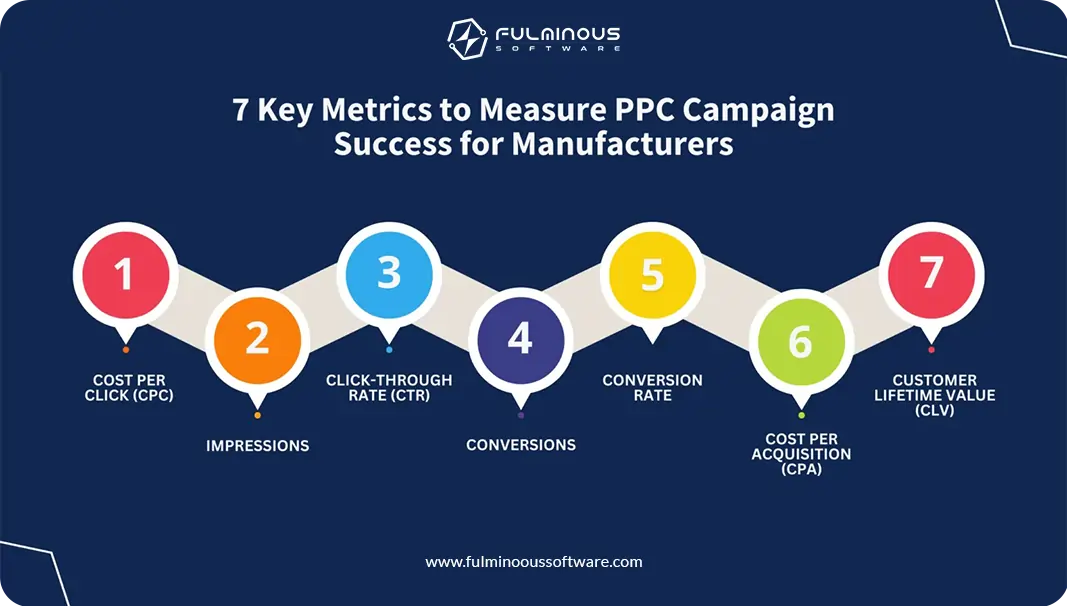
For manufacturers, it's really important to check how well their PPC advertising is doing. By looking at the data and key performance indicators (KPIs), they can understand a lot about how effective their PPC ads are.
Here are some of the main things manufacturers should keep an eye on:
With conversion rate, you're seeing what portion of people actually does something after clicking on your ad.
Click-through rate tells you how many folks clicked on your ad compared to how many saw it.
Cost per conversion looks at the money spent for each lead or sale made from an ad.
Return on ad spend (ROAS) calculates what you earn against every dollar spent on ads.
Key Performance Indicators (KPIs) to Track
When measuring the success of PPC campaigns, manufacturers should track several key performance indicators (KPIs) to evaluate the effectiveness of their campaigns. The following are some important KPIs to track for measuring the success of PPC campaigns:
| KPI | Definition |
|---|---|
| Conversion Rate | The percentage of users who take the desired action after clicking on a PPC ad. |
| Click-through Rate | The percentage of users who click on a PPC ad out of the total number of impressions. |
| Cost per Conversion | The average cost to generate each conversion. |
Analyzing and Interpreting PPC Data
To really get the most out of their PPC campaigns, manufacturers need to dig into the data. When looking at PPC data, here's what manufacturers should focus on:
- Campaign performance: Starting with how well each campaign is doing is key. By checking things like how often people click on their ads (click-through rates), how many of those clicks turn into actual sales or actions (conversion rates), and whether they're getting a good return on the money they spend on ads (return on ad spend), manufacturers can see which campaigns are hitting it off with customers and which ones might need some tweaking.
- Data analysis: With so much information coming from these campaigns, diving deep helps uncover important stuff like trends over time or specific customer behaviors. This kind of look under the hood can tell them a lot about who likes their products based on keywords used or even show them if certain types of ads do better than others.
- Refining marketing strategy: After taking a close look at all this data, making changes becomes easier for manufacturers. They might decide to shift budgets around; target new keywords that could bring in more interested folks; change up demographics; or tweak ad copy and landing pages to draw more attention.
Avoiding Common PPC Pitfalls
To have a successful PPC campaign, manufacturers need to know about the common mistakes and make sure they don't fall into them.
By steering clear of these errors, they can really get the most out of their campaigns, pull in leads that are actually interested, and get better returns on what they spend.
Here's what manufacturers should watch out for:
- When it comes to bidding too much: It's smart for manufacturers to keep an eye on how much they're spending per click. They've got to look at what others are doing, think about how valuable certain keywords are, and bid in a way that makes sense.
- Getting leads that aren't great: Manufacturers must aim their ads at people who will likely be interested in what they offer. This means picking the right demographics, interests, and places so that more qualified folks see their ads.
- Not paying attention to negative keywords: It’s crucial for manufacturers to figure out which negative keywords should be left out. Doing this stops ads from showing up where they shouldn’t be seen – saving money and making targeting sharper
Avoiding Poor Quality Leads
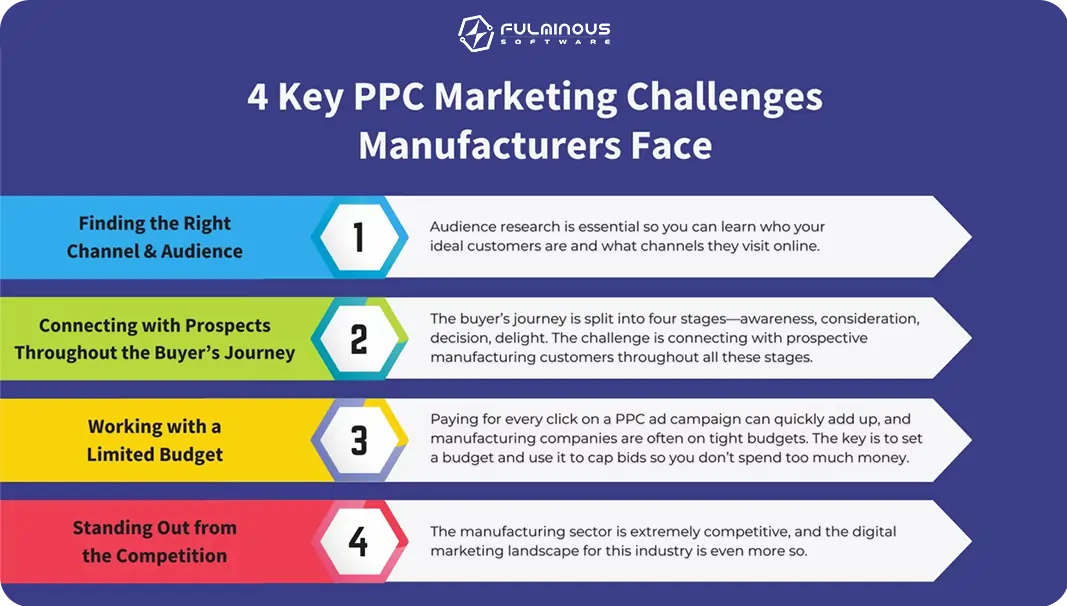
For PPC campaigns to be successful, it's crucial for manufacturers to generate leads that are of high quality. They should steer clear of drawing in leads that don't really match what they're offering and instead aim their ads at a very specific group of people who are likely interested.
To keep away from attracting the wrong kind of interest, here's what manufacturers can do:
- Decide precisely who you want to see your advertisements for first. When you know who your target audience is down to specifics like these, you’re more likely to pull in leads that actually matter.
- With keyword research on their side, manufacturers need to pinpoint which words or phrases their ideal customers might use when searching online. Zeroing in on just the right keywords related directly to their intended crowd’s needs or wants helps ensure those seeing the ads have a genuine interest.
- Crafting an ad copy shouldn’t be taken lightly either; it has got to speak directly and compellingly about why someone should care about what’s being offered—making them feel compelled enough not only to click but also take action beyond that initial engagement ensures weeding out anyone merely browsing without intent.
Future Trends in PPC for Manufacturers
As the world of tech keeps changing, there are new ways popping up for manufacturers to get better at PPC and beat their rivals. These changes bring both chances to do well and hurdles to overcome.
Here's what's coming up in PPC for those who make things:
- With automation like machine learning and AI stepping into the spotlight, it’s getting big in PPC efforts.
- Then there’s Artificial Intelligence: It gives makers a deep dive into useful tips on making their PPC work better.
- On top of that is Voice Search: As more people start talking to devices instead of typing searches manually because voice assistants are everywhere now; this trend is shaping how campaigns should be planned out too—focusing on longer keywords that sound natural when spoken aloud helps catch those queries.
Embracing Automation and AI in PPC
By using automation and artificial intelligence (AI), manufacturers can make their PPC campaigns a lot better. With automation, they don't have to spend so much time on tasks like choosing keywords, making ads, or tweaking their campaigns for the best results because these things get done automatically. AI goes through tons of data to find trends that help in picking the right bidding strategies and focusing on the right audience which boosts campaign performance. This way, manufacturers' PPC efforts are more effective and bring more interested people to their websites. On top of this, when they use AI for chatbots and customer support systems, it makes potential customers feel more looked after by offering them personalized help quickly.
The Impact of Voice Search on PPC
Voice search is getting more popular by the day, with lots of folks using things like smartphones and smart speakers to look stuff up online.
With voice search, how people hunt for information shifts. They're not just typing in keywords anymore; they're asking questions in a way that's natural for them. So, manufacturers have got to tweak their PPC campaigns to catch these new kinds of searches.
To get on board with voice search, manufacturers can:
- Aim at longer phrases and keywords that sound more like regular conversation because that's how people talk.
- Make sure their websites work great on mobile phones since a lot of voice searches happen there.
- Add extra bits to their ads—like location or call buttons—to give quick and useful info right when voice searchers need it.
Conclusion
To wrap things up, getting really good at PPC for the manufacturing sector means you've got to get how important it is in today's marketing game. Begin with fixing clear goals for your PPC. Make sure not just to throw money at the problem; instead, watch out for spending too much and keep an eye on new stuff like using machines and AI that could put you ahead of others. Always check in on how your campaign is going and think about ways PPC can help bring more people to visit without having paid for every click. Stay sharp by staying updated with changes, adapting when necessary, and using PPC wisely to stand out in the busy world of manufacturing. manufacturing PPC service providers like Fulmious Software can assist you in best PPC practices for industrial Companies. Connect with us for PPC advertising tips.
As a trusted manufacturing PPC agency, Fulminous Software knows the ins and outs of the manufacturing sector. From crafting engaging ad copy to managing your campaigns for the best results, we ensure your budget works hard for you. Let Fulminous Software help you grow with tailored PPC for the manufacturing industry. Contact us today to start driving better leads and achieving measurable results for your business.
FAQs
Q1: What is PPC advertising and how can it benefit my manufacturing business?
A: In pay-per-click (PPC) advertising, businesses pay out a certain amount each time a user clicks on the advertisement. For manufacturing businesses, PPC is highly beneficial because it allows you to target specific keywords relevant to your products, ensuring your ads are shown to potential customers actively searching for your offerings.
Q2: What steps should I take to prepare for my first PPC campaign in the manufacturing sector?
A: To prepare for your first PPC campaign, follow these steps:
- Define Campaign Goals
- Choose the Right Platforms
- Keyword Research
- Create a Landing Page
- Set Your Budget and Target Audience
- Monitor and Adjust
Q3: What advanced PPC tactics can help improve the performance of my manufacturing business’s PPC campaigns?
A: To enhance your PPC campaign performance, consider these advanced tactics:
- Remarketing: Re-engage users by displaying adverts to them after they have already visited your website.
- A/B Testing: Test different versions of your ads or landing pages to see which performs better.
- Utilize Automation and AI: Implement automation and AI to streamline tasks.
- Optimize for Voice Search: Target longer, conversational keywords and ensure your website is mobile-friendly to capture voice search traffic.
Q4: Which key performance indicators (KPIs) should I track to measure the success of my PPC campaign?
A: Track these KPIs to evaluate your PPC campaign:
- Conversion Rate
- Click-through Rate (CTR)
- Cost per Conversion
- Website Traffic
Q5: What should I look for when choosing a manufacturing PPC company?
A: Choose a manufacturing PPC company with industry expertise, tailored strategies, keyword optimization, regular performance reports, and ongoing campaign optimization for maximum ROI.
Q6: How do manufacturing PPC ads differ from traditional PPC ads?
A: Manufacturing PPC ads target B2B audiences, using technical keywords, industry jargon, and focusing on lead generation rather than direct sales.
Q7: Why is PPC advertising important for manufacturers?
A: PPC advertising for manufacturers drives targeted traffic, increases brand visibility, captures high-quality leads, and provides measurable results, making it crucial for business growth.
Q8: How does PPC management for manufacturing companies work?
A: PPC management for manufacturing companies involves creating, monitoring, and optimizing campaigns, including keyword research, bid management, and performance analysis to generate valuable leads.
Q9: What are the best PPC practices for industrial companies?
Best PPC practices for industrial companies include using industry-specific keywords, targeted ad groups, optimized landing pages, remarketing, mobile optimization, and detailed analytics.
Q10. How can B2B manufacturing software PPC campaigns maximize ROI?
B2B manufacturing software PPC maximizes ROI by targeting niche keywords, optimizing landing pages, using ad extensions, A/B testing, and leveraging conversion tracking tools.
HIRE A TOP SOFTWARE DEVELOPMENT COMPANY

 Verified
Expert in Software & Web App Engineering
Verified
Expert in Software & Web App Engineering
I am Manish Kumawat, co-founder of Fulminous Software, a top leading customized software design and development company with a global presence in the USA, Australia, UK, and Europe. Over the last 10+ years, I am designing and developing web applications, e-commerce online stores, and software solutions custom tailored according to business industries needs. Being an experienced entrepreneur and research professional my main vision is to enlighten business owners, and worldwide audiences to provide in-depth IT sector knowledge with latest IT trends to grow businesses online.
Partner with Top-Notch Web Application Development Company!
Discuss your Custom Application Requirements on info@fulminoussoftware.com or call us on +1-903 488 7170.
15 Days Risk-Free Trial
